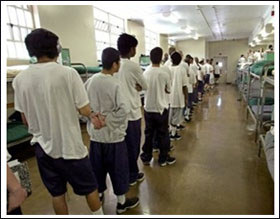I read an interesting article last week about how the cost for compensating veteran's of war are rising rapidly due to the treatment of mental disorders such as post-traumatic stress disorder.
The article goes on to talk about how there are now different generations of vets - from different wars. There are those from Vietnam, those from the Persian Gulf war, and more recently those from the war on freedom in Iraq. While these generations were engaged in different wars they all seem to share the same burden from post-traumatic stress disorder and other mental illnesses.
So, the true costs of these wars continue to rise. According to the article 31% of Iraq vets have been diagnosed with mental illness. 'Last year, mental illnesses accounted for 35 percent of the $22 billion spent on disability payments to veterans who served in the Vietnam, Persian Gulf and "global war on terror" eras, according to a Chicago Tribune analysis. '
These costs need to be considered when rationizing the decision to go to war. While the short-run costs are easier to conceive and put a number on, the long-run costs like those of mental illnesses are what put a financial burden on the country.
Here is the link below:
http://www.mercurynews.com/news/ci_14907617?source=rss


